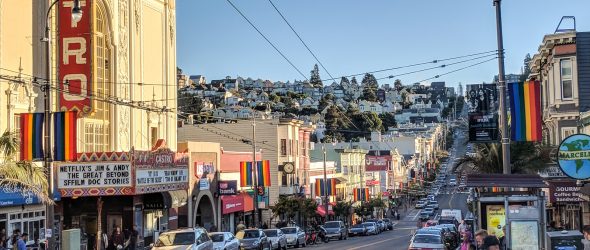If you can consume legal cannabis, there is a small group of dedicated and passionate cannabis activists to thank, one of whom is Dennis Peron. Widely credited as the “Father of Medical Marijuana” in California, he was an activist who worked tirelessly for access to medical use cannabis, beginning with the San Francisco gay community at the height of the AIDS epidemic in the 1980s and ’90s. His partner, Jonathan West, died of AIDS in 1990.
Peron kept charismatic company, befriending politicians and activists like Harvey Milk, the first openly gay — and subsequently assassinated — politician in California, and Mary Jane Rathbun, aka Brownie Mary, who became well-known for baking and giving pot brownies to San Francisco’s AIDS patients. He later married another activist in the medical marijuana movement, John Entwistle.
My last photo session with Dennis Peron in Humboldt County, California in early 2017.
A true OG + pioneer for legal cannabis. 🙏🏼 pic.twitter.com/IWw0CnmKuF
— Curt Robbins (@RobbinsGroupLLC) April 8, 2020
Peron was born in the Bronx and grew up in Long Island, New York. After a stint in the Air Force during the Vietnam War, Peron returned to the U.S. with two pounds of smuggled weed. Soon thereafter, he moved to San Francisco’s Castro District and joined Abbie Hoffman’s Youth International Party (Yippies), and in 1991, he organized the passage of San Francisco’s Proposition P, a resolution that allowed San Francisco residents to consume medical cannabis without being criminalized.
Cannabis, violence, and the road to legalization
In 1994, Peron co-founded, along with Brownie Mary and several others, San Francisco’s Cannabis Buyers Club, the first public medical cannabis dispensary in the U.S. But the Cannabis Buyers Club was nothing like the clean, curated and state-legal dispensaries consumers know today. Essentially selling illegal cannabis out in the open, the collective was under constant threat of harassment, arrest — which happened many times — and even violence (Peron was shot in the leg by a San Francisco police officer).
Perhaps Peron’s most well-known contribution to the current cannabis landscape is his work on California’s Proposition 215, thought to have blazed a direct path to the passage of Prop 64 in 2016 that legalized cannabis for adults 21 and older in the Golden State.
However, he did not support Prop 64 or Prop 19 before it, either literally or figuratively. Peron believed that there was no such thing as “recreational” cannabis and that all people who consume cannabis are doing it for medicinal purposes, whether they know it or not.
“There is no recreational marijuana. They made it up. What they’re trying to do is separate us by saying there’s people having fun and there’s people medicating,” Peron told Merry Jane in 2016. “But people who use marijuana don’t get ‘high,’ they get normal. The government is trying to say that people are getting high. They’re trying to demonize these people because they’re having fun.
He was also strongly opposed to taxing cannabis, saying in the “Time for Hemp” podcast in 2010, “In California and other states, medicine is not taxed. Now all of a sudden our medicine has to be taxed. And I don’t get this tax … And I know it sounds good to say, ‘let’s just tax our way out of this thing. But you can’t. This is a moral crusade.”
In his later years, Peron ran a cannabis farm in northern California and received formal recognition from the San Francisco Board of Supervisors for his activism. In 2018, at the age of 72, Peron passed away from lung cancer. He is survived by his husband, John Entwistle, another important activist in the gay rights and cannabis legalization movements. Peron has left behind an important and groundbreaking legacy.
Featured image by Eddie Hernandez Photos/Shutterstock
Erin Hiatt
Erin Hiatt came to writing about cannabis, hemp, and psychedelics after a career as an actor and dancer. Her work has appeared in Vice, Civilized, MERRY JANE, Hemp Connoisseur Magazine, Marijuana Goes Mainstream, Doubleblind, and others.


